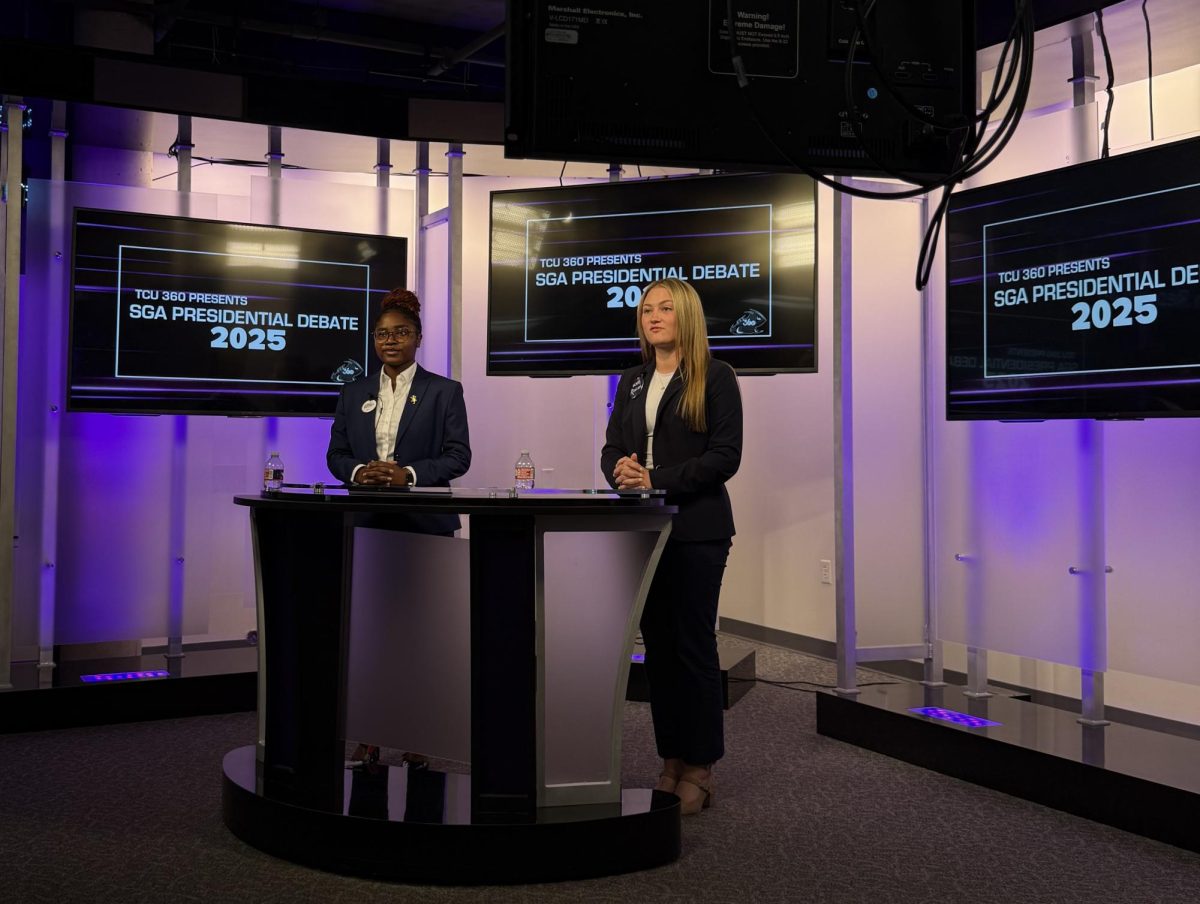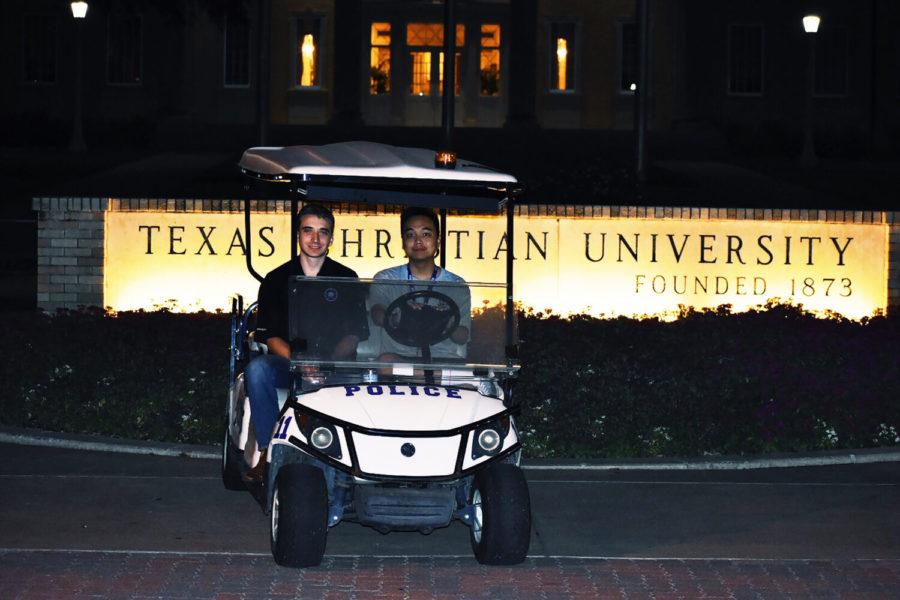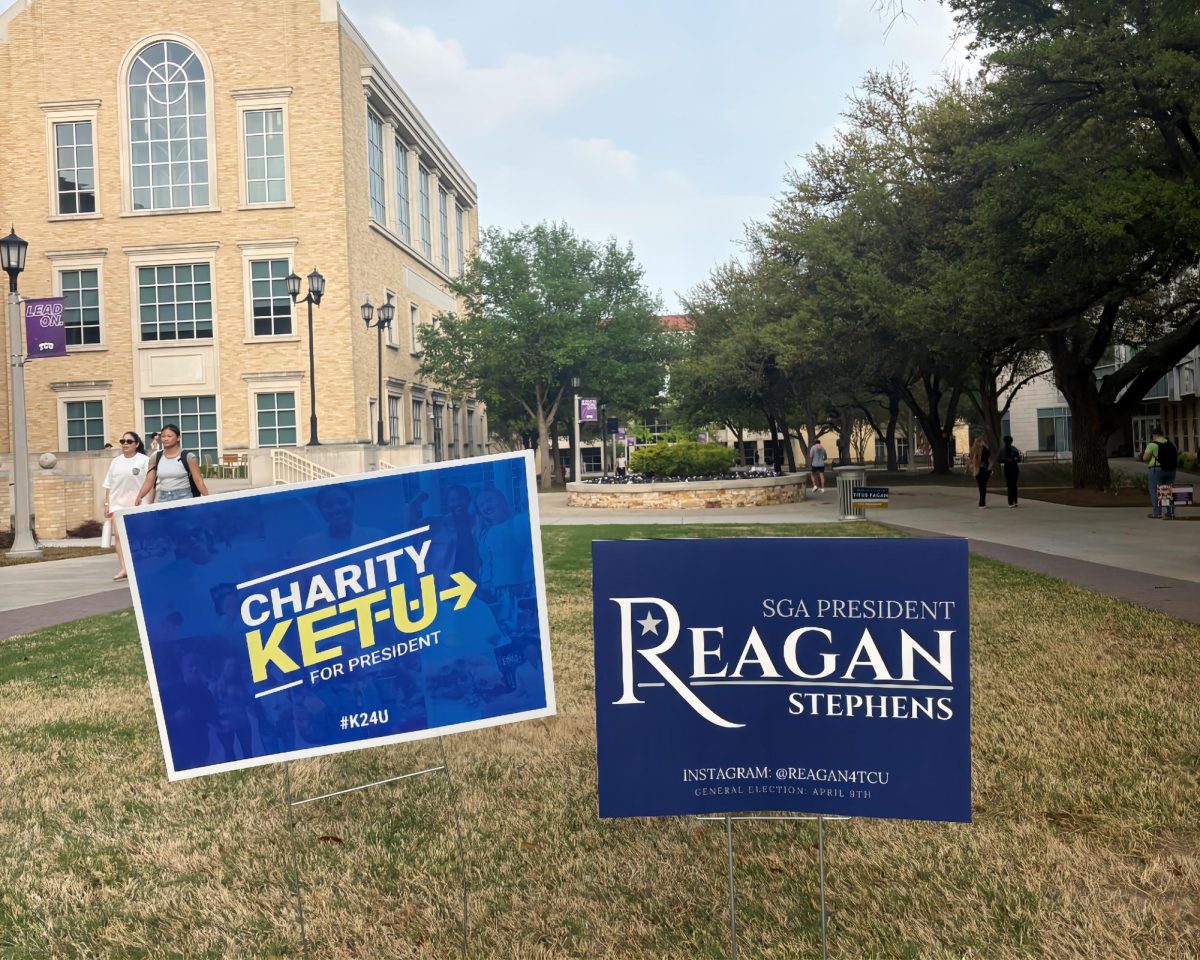At a pivotal moment in TCU’s expansion, students will decide Wednesday, April 9 between two candidates with competing visions for how the university should evolve while preserving its core identity.
Vice President Charity Ketu and Speaker of the House Reagan Stephens present distinct approaches to student governance. The winner will be TCU’s first female student body president since 2020.
The election arrives as TCU implements its ambitious strategic plan, raising fundamental questions about student representation, campus traditions and institutional priorities. Both candidates have crafted platforms that interpret TCU’s core values of integrity, engagement, community and excellence through distinctly different lenses.
Polls are open Wednesday from 9 a.m. to 7 p.m.
Platforms
Stephens, who is running on a platform titled “REAL Results,” has emphasized action and accountability through campus-focused reforms. Her proposal, the Parking Relief Program, would allow students to perform community service hours rather than pay parking citations.
“Every time a student comes up to anyone in SGA and we ask them what they want improved on campus or what’s one problem they’re having, they will always say parking,” Stephens said. “Students could perform service hours to the university in place of paying that $40-$50 for parking tickets.”
The program aims to transform a common student frustration into an opportunity for civic engagement, reflecting a pragmatic approach to governance.
Stephens also advocates for restoring the homecoming parade, a tradition she believes connects generations of alumni and students. “The homecoming parade isn’t just about school spirit—it’s about connecting generations of Horned Frogs,” she said. “These shared experiences are what bind us together across differences.”
Other initiatives in her platform include expanding career preparation resources through the academic catalog and increasing tuition transparency, proposals that focus on tangible, measurable outcomes.
Ketu’s campaign, “Advocacy. Community. Transparency,” centers on institutional reform, student representation and financial equity. Her three-pillar approach addresses systemic issues in university governance and student support.
“TCU recently launched its Strategic Plan—a roadmap for how the university will grow. And it’s imperative that students be at the center of it,” Ketu said. Her proposed Student Voice Initiative would establish permanent student representation on strategic planning committees, focusing particularly on maintaining the university’s 14:1 student-faculty ratio as enrollment increases.
Her Food Security Policy addresses institutional gaps in dining services. “This initiative will ensure students have consistent access to affordable nutrition regardless of academic calendar constraints,” she said.
Ketu’s Scholarship Equity Framework represents her most ambitious proposal. “When tuition increases, scholarships often don’t increase proportionally,” she said. “This creates a widening affordability gap for continuing students.”
Her plan would establish an institutional commitment to corresponding increases in financial aid when tuition rises.
Leadership
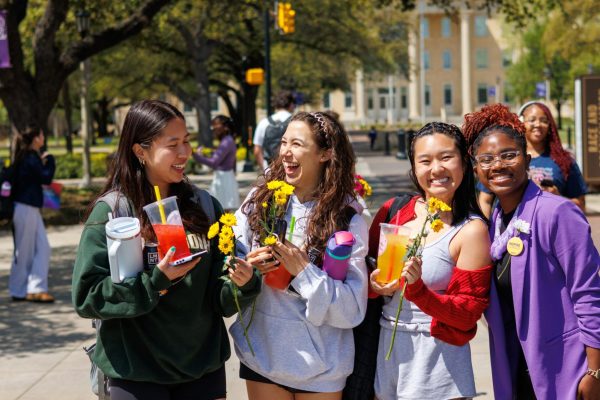
Both candidates draw on personal faith to shape their leadership philosophy, reflecting TCU’s Christian heritage and emphasis on ethical leadership.
Ketu, founder of campus ministry The Christian Talk, which brings together nearly 70 students weekly, views her leadership through a lens of service.
“Being a believer has taught me to lead with servant-hearted humility,” she said. “In a culture that can be individualistic, my faith reminds me that leadership means putting others first.”
Stephens similarly grounds her approach in values-based leadership.
“Ethical leadership means showing up, following through, and putting others first,” she said, connecting her emphasis on tradition and institutional memory to a broader understanding of community spanning generations.
Their faith-based approaches align with TCU’s institutional mission of developing ethical leaders for a global society, according to Kim Turner, executive director of student involvement and traditions.
“They’re smart, grounded in faith, and care deeply about TCU,” Turner said. “This election is a chance to reflect on what kind of leadership our community wants—and what kind of community we want to be.”
Endorsements
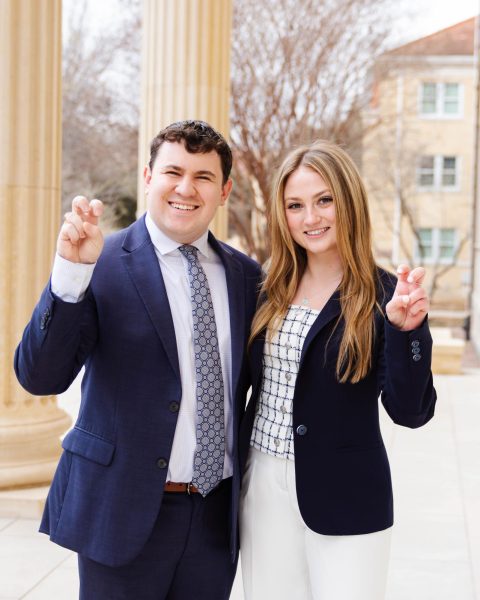
Stephens has secured key endorsements from current student government leadership, including outgoing Student Body President Dominic Mendlik and Student Body Treasurer Julia Laswell. Both cited her experience in two consecutive SGA administrations as a crucial qualification.
“I’m supporting Reagan because she has the experience over the last two student body cabinets to deliver you real results,” Mendlik said, emphasizing the importance of continuity in student leadership. “The relationships she’s built with administration will allow her to make immediate progress.”
Ketu has developed support through engagement with diverse student groups, particularly among international students, first-generation college students and faith-based organizations.
Vision
Stephens emphasizes creating long-term systems. “I don’t just want to get things done this year—I want to create systems that make SGA more efficient and effective long after I’m gone,” she said.
Ketu focuses on listening to diverse student needs, with her platform evolving through direct student engagement. “Last year, I ran on a platform void of promises I knew I couldn’t fulfill,” Ketu said. “That hasn’t changed.”
Values
The election reflects TCU’s core values:
- Integrity through tuition transparency and honest representation
- Engagement through active campaigning and student-focused reform
- Community through platforms addressing inclusivity
- Excellence through leadership experience and institutional improvement
As students prepare to vote, campaigns continue engaging with the student body through classroom visits and organization meetings.
The outcome will signal how students interpret their role in shaping campus culture as TCU continues to evolve.

